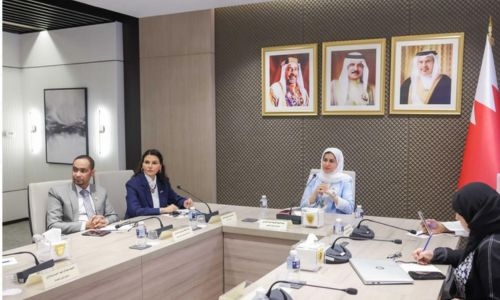The Shura Council’s Secretary-General, HE Karima Al Abbasi, recently announced plans to enhance legislative functions through technology-based initiatives. During a meeting with General Secretariat officials, Al Abbasi outlined the agenda for the upcoming session of the sixth legislative term. The focus will be on bolstering administrative, technical, and research capabilities in alignment with the council’s strategic plan for 2024-2026. Al Abbasi commended the efforts of the General Secretariat staff and emphasized the importance of continuous improvements within Bahrain’s legislative framework. These efforts support Chairman Ali bin Saleh Al Saleh’s vision of enabling council members to fulfill their national duties while promoting the development goals established by His Majesty the King.
The Shura Council’s commitment to leveraging technology to enhance legislative functions reflects a proactive approach to modernizing governance and decision-making processes. By incorporating digital tools and resources, the council aims to streamline administrative tasks, facilitate research activities, and improve overall efficiency. Embracing technological advancements not only enhances operational effectiveness but also demonstrates the council’s dedication to staying abreast of global trends in legislative governance. By prioritizing the integration of technology into its operations, the Shura Council sets a precedent for other governmental bodies in Bahrain and beyond to embrace innovation in their respective functions.
The emphasis on strengthening administrative, technical, and research capabilities underscores the council’s commitment to enhancing its institutional capacity and effectiveness. By investing in the professional development of its staff and providing them with the necessary tools and resources, the council sets itself up for sustained success in fulfilling its legislative mandate. The focus on capacity-building also reflects the council’s recognition of the evolving nature of governance and the need to adapt to changing circumstances and challenges. By equipping its workforce with the skills and knowledge required to navigate complex legislative issues, the council enhances its ability to address key national priorities and contribute meaningfully to Bahrain’s development agenda.
The acknowledgment of the General Secretariat staff’s efforts and progress highlights the importance of cultivating a culture of excellence and continuous improvement within Bahrain’s legislative framework. By recognizing and valuing the contributions of its employees, the council fosters a sense of morale and dedication among its workforce, leading to increased productivity and efficiency. Moreover, by encouraging a collaborative and supportive work environment, the council ensures that its staff are motivated to excel in their roles and contribute positively to the council’s overall objectives. Through effective communication and feedback mechanisms, the council can further enhance the performance and effectiveness of its staff, ensuring that they are well-equipped to meet the demands of their roles in a rapidly changing legislative landscape.
Chairman Ali bin Saleh Al Saleh’s vision of enabling council members to fulfill their national responsibilities while aligning with the development goals set by His Majesty the King demonstrates a strong commitment to governance excellence and national progress. By providing council members with the necessary support, resources, and guidance, Al Saleh empowers them to make informed decisions and contribute meaningfully to Bahrain’s legislative agenda. This approach not only enhances the credibility and effectiveness of the council but also reinforces its role as a key player in shaping the country’s future trajectory. By aligning its strategic objectives with the national development priorities, the council demonstrates its dedication to supporting Bahrain’s growth and prosperity through informed and responsive governance.
In conclusion, the Shura Council’s adoption of technology-based initiatives to enhance legislative functions represents a significant step towards modernizing governance and decision-making processes in Bahrain. By prioritizing the strengthening of administrative, technical, and research capabilities, the council demonstrates its commitment to capacity-building and institutional growth. The recognition of the General Secretariat staff’s efforts and progress underscores the importance of cultivating a culture of excellence and continuous improvement within the legislative framework. Chairman Ali bin Saleh Al Saleh’s vision of enabling council members to fulfill their national responsibilities while reflecting the development goals set by His Majesty the King showcases a strong commitment to governance excellence and national progress. By leveraging technology, investing in capacity-building, and promoting collaboration and support among its workforce, the Shura Council is poised to enhance its effectiveness and contribute significantly to Bahrain’s development agenda in the years to come.











